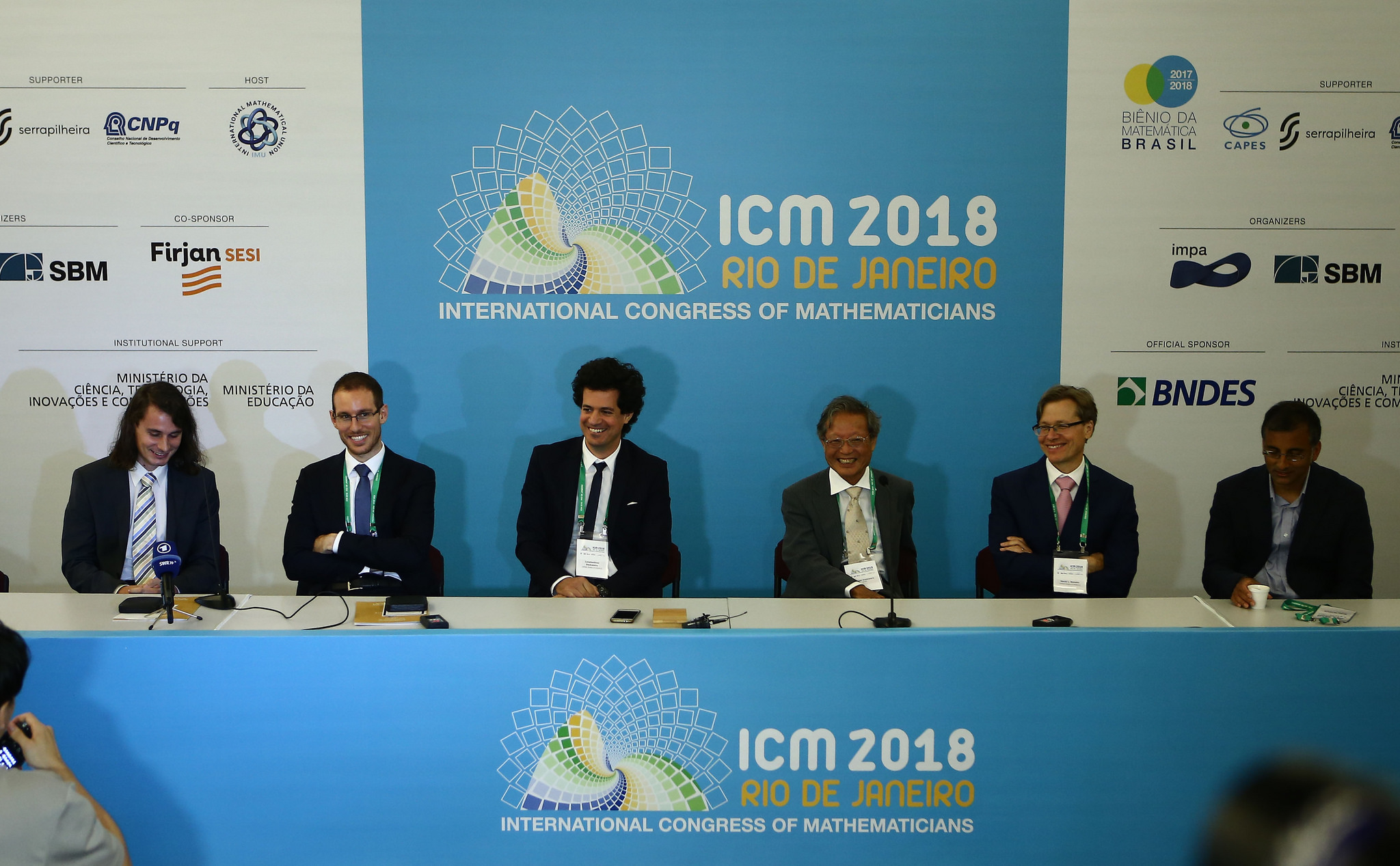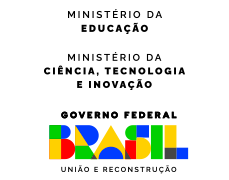ICM Award winners Reminisce about Finding Joy in Math

When a mathematician wins the Fields medal, Nevanlinna prize, or Gauss prize, there is no doubt that a feeling of joy and accomplishment overcomes him or her. But for this year’s winners, that joy doesn’t quite compare to the joy they felt when winning their first math award, being accepted to a math-intensive school, or seeing their work applied in the real world.
“I felt my first joy when I won a regional math Olympiad in Germany,” said Peter Scholze, a newly minted Fields award winner. “Since then I’m always expecting this to stop somewhere.”
Read more: Brazil’s Brightest: Gugu, the Eternal Math Olympian
“My work is conjectures based on conjectures”
The Research Conundrum: Write lots of easy papers, or tackle the tough ones
An ICM press conference featured Fields medal winners Akshay Venkatesh, Alessio Figalli and Peter Scholze, along with Gauss prize winner David Donoho, Chern medal winner Masaki Kashiwara and
Nevanlinna Prize winner Constantinos Daskalakis.
These math geniuses shared their past experiences of feeling joy in math and posed with their new metalware.
“We’re not really in this for the prizes,” said Stanford professor Akshay Venkatesh. “You get in feeling you have contributed something to the mathematics. It’s a lasting feeling that it brings you great satisfaction.
Donoho, a professor at Stanford University, won the Gauss prize because work that he had done many years ago was finally being applied in real life. And that, more so than his prize, is giving him joy.
“This award is associated with things I did decades ago coming to fruition in the real world because of events long ago,” Donoho said. “Three major medical device manufacturers developed MRI technology that is based on a paper I wrote so many years ago I almost forgot it. Somebody found it interesting enough to do something with it in the real world. I’m in awe of how non-mathematicians can get into math.”
Alessio Figalli felt joy when he was accepted to the PISA school in Italy, even though he didn’t study math at his classical high school.
“In school, I studied philosophy—everything but mathematics,” Figalli said. “But the school still accepted me. That was the beginning of my path in mathematics. I felt that maybe I can do mathematics.”
Several of the mathematicians also acknowledged that the world is becoming more dynamically involved with math every day.
“Mathematicians evolves with society,” Figalli said. “The more society changes, the more we get new problems. Mathematics is very dynamic. There are more mathematicians in the world. Many governments are starting to invest in math.”
As society becomes more data heavy, there will be more opportunities to use that data in math.
“With the collection of data that we see happening these days, we get plenty of opportunities for using this data,” said “We see data analysis coming to things that weren’t traditionally data-heavy.”


